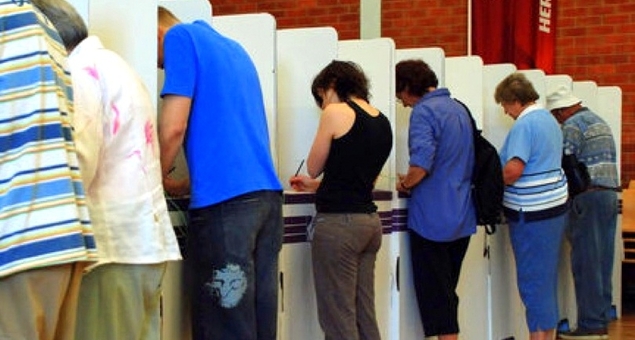
‘This plebiscite is being set up to fail. We’re being played.’ article by Matt Akersten inspired the following comments.
How the plebiscite will be counted, and what determines a ‘win’ is incredibly important information. It will determine the type and level of campaigning needed.
Why campaigning? Isn’t this an issue of personal beliefs?
Well, yes. It is. No one wants to see campaigning on this issue, because it’s going to get ugly. It’s going to get personal. It’s most likely going to damage some of the most vulnerable citizens in Australia: those who already struggle with being accepted by the wider community.
Think if someone took a core aspect of yourself, and aggressively campaigned against your right to be that way.
This doesn’t just apply to votes against marriage equality, either. Voters for can be just as aggressive in their tactics, attacking religion (another closely held part of some people) as being wrong and influencing ‘wrong attitudes’. Whatever you believe on the issues of homosexuality or religion, I think we can all agree that no one deserves to be attacked in that way.
But it will happen, and depending on how the plebiscite is counted, it will need to happen. Why? Because the outcome will be decided by the vast majority: people who are absolutely indifferent to whether marriage equality is a thing or not. It doesn’t carry any weight in their lives, and they will vote in accordance with how they feel on the day.
Unless they are brought over to one side or another. It will be the voting equivalent of Hungry Hungry Hippos, with both sides trying to snap up as many indifferent voters as they can before the poll.
And like Hungry Hungry Hippos with my siblings, it is going to get extremely ugly.
What do you mean, ‘how it’s counted matters’?
Plebiscites can be counted in a number of different ways, and the rules will be decided by the governing party (if the Coalition retains government, the plebiscite will go ahead and they will make the rules).
It may follow the rules of a constitutional referendum, and if it does—the pro-marriage equality movement is dead in the water.
To succeed, a referendum is determined by the majority of citizens in an electorate, the majority of electorates in a state, and then a majority of states in the country.
That means that even if 40% of electorates in Victoria get a 95% ‘yes’ vote, because 60% were determined ‘no’, the state votes ‘no’.
But—if only Queensland and Victoria are determined as ‘no’ votes, the referendum can still pass as the majority of states in the country have voted ‘yes’. Referendums almost always fail.
Referendums are also legally binding, meaning the government -must- act on the outcome of the vote. Plebiscites are not, and are meant to serve as guidance for members of parliament in how they should proceed in the way that best reflects their electorate.
Situation: Risky.
How the plebiscite will be counted hasn’t been revealed yet. Either it hasn’t been decided, or the Coalition is staying tight-lipped for a reason. An outcome of ‘no’ could see marriage equality shelved for years or more, and we may see an outcome of ‘no’ simply due to the number of people who don’t really care, and don’t understand why anything needs to change.
A conscience vote in parliament is an equally risky move. It would allow MPs to vote based on what they feel to be right, whether that’s a personal belief or one based on what they feel their electorate wants (which you’d hope they consider at all times). It allows MPs to vote against party lines if they need to.
Whichever path we take, it will be a risk. It may prove expensive. Marriage equality is inevitable in the future, but at what rate Australia catches up to the rest of the world is unfortunately for the government to decide.
If you don’t care, just vote ‘yes’.
In the mean time, if you have a view and you know people who don’t care—share it with them. Encourage them to research and find their own position on the matter, because if the plebiscite goes ahead, their vote will have an impact.
And if they aren’t motivated to find their own opinion, ask them to vote yes. It won’t change their own lives, but it could make someone else’s life complete.
If it doesn’t matter to you, vote yes for someone it does matter to.